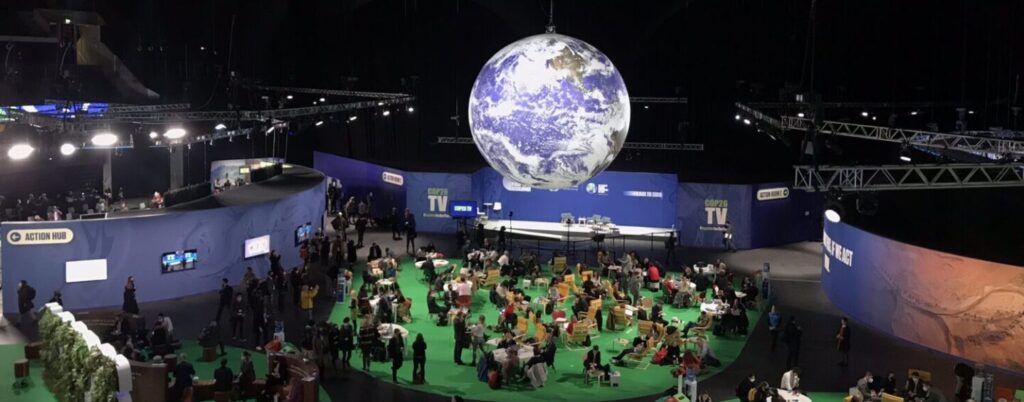The Amazon Science Museum attended the 26th United Nations Conference on Climate Change, which took place from October 31st to November 12th of 2021 in Glasgow, Scotland. The museum’s general coordinator, Luiz Felipe Moura, gave a lecture about forestry production in Conservation Units (UCs) associated with surveillance. He also lectured about the implementation of services to create the CO2 credit platform.
The Conservation Units (UCs) existing today in Brazil have a vocation to go beyond the protection function they perform now, acting as areas aimed at zero carbon production of items such as super foods, biocosmetics and pharmaceuticals. They are strategic places regarding both social and economical fields, as they provide food security for the population and expanding the scope of exports of forest products.Investing in knowledge and science is the most assertive way to achieve a more prosperous future, much more than any alternative that comes from traditional politics or from increased public spending. Allowing the 20 million people who live in Brazilian forests today to generate their own wealth is the way to guarantee the country’s place at the forefront of agroforestry.
The pilot project for this idea already exists and it is the result of an initiative between MuCA and the federal government focusing on the production of turmeric, ginger and cocoa. “Requiring land demarcation without a good plan on how to use it in order to reduce inequality does not solve the problem. The native population also needs to be able to generate their own wealth and emancipate themselves on the grounds of a new model of sustainability based on the forest”, explains Luiz Felipe Moura, general coordinator of the museum.
The UCs aim to guarantee the preservation of biological diversity and promote sustainable development based on natural resources. And when it comes to carbon credits, they were created to calculate the reduction in greenhouse gas emissions and their commercialization value”, explains Luiz. “MuCA presents itself as a unique opportunity to consolidate humanity’s greatest legacy for the next generations, a way for human beings to reconnect with nature and a huge opportunity for the industry to launch itself into the bioeconomy era”, he adds.
